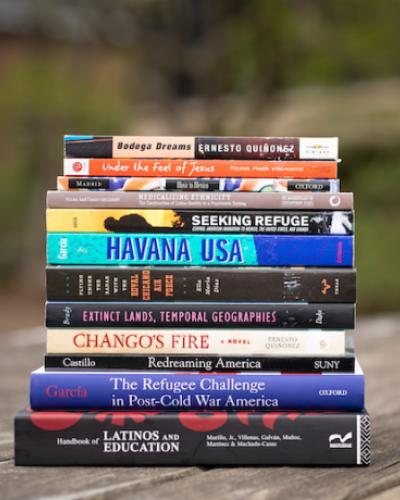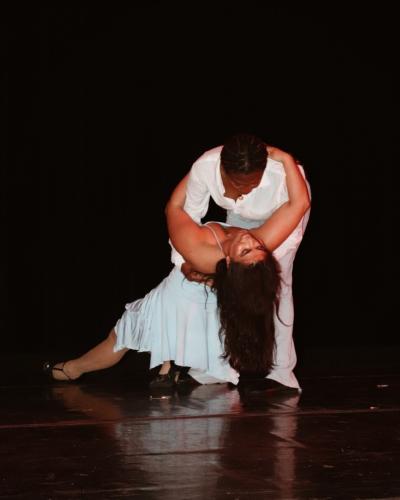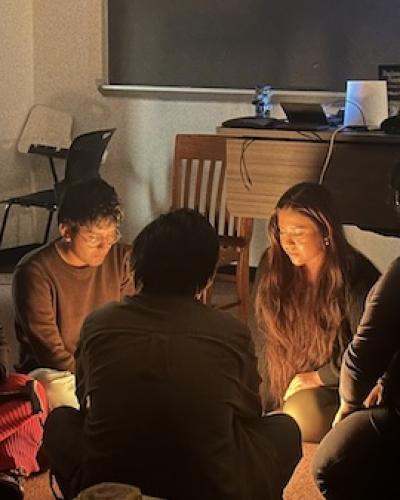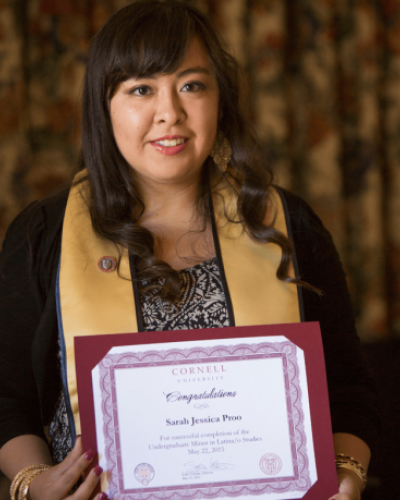Why did you choose Cornell?
I wanted a university that was intellectually engaging, and a campus that was large and full of endless opportunities. I also wanted a town that was homey and filled with natural beauty. Cornell epitomized these desires for me.
What is your main Cornell extracurricular activity -- why is it important to you?
My main extracurricular activity has been engaging and uplifting the Cornell Latina/o community through my involvement with Lambda Theta Alpha Latin Sorority, Inc. and La Asociación Latina. LTA, as the first and largest Latina sorority in the nation, helped propel my desire to enact social and political change for marginalized populations. LAL is the umbrella organization for most Latino student organizations on campus. Having served as President of both organizations, I take pride in having organized numerous social, cultural, and professional events for my community.
What was your most profound turning point while at Cornell?
As a first generation college student, my most profound turning point was realizing that I didn’t need to be a science major to be successful. Once I realized this at the end of my sophomore year, I decided to follow my passions and switch to English.
What, if any, Cornell-related scholarships/special financial benefits did you receive?
In 2014, I received the Learning Strategies Center Summer Scholarship to study abroad in Madrid and complete the Spanish minor.
What accomplishments/activities are you most proud of while at Cornell?
I am most proud of my tenacity to challenge my comfort zones, move across the country, and become the first in my family to graduate from a four-year institution. I am equally proud of myself for gaining admission into several PhD programs.
What, if any, research projects did you participate in at Cornell?
As a OADI Research Scholar my junior year, I sought to identify common themes among literary works that were banned from the Tucson Unified School District’s Mexican-American/Raza Studies Program. This year, I wrote my senior honors thesis on comparative representations of Asian-Latina/os in cultural production such as literature, poetry, and art.
What Cornell memory do you treasure the most?
I will always treasure the day that I moved into my Carl Becker dorm room during the Prefreshman Summer Program. My mom really wanted to help me settle into college, so she, my aunt, my little sisters, and I decided to take a road trip from my Californian hometown to Ithaca. Over the four days that we were traveling, I noticed that both my and my mother’s emotions had transitioned from a state of curiosity towards our geographic surroundings, to a state of sadness due to my looming departure. After my mom helped me unpack and arrange my room, I remember waving goodbye to her through my dorm window. Even though it was a rather sad moment, it symbolized the love and sacrifices that helped me reach that point.
Who or what influenced your Cornell education the most? How or why?
Back home, my family has been my biggest support system since day one. They have been the ones to help me put my goals into perspective and remind me that I am human. On campus, Professor Ella Diaz has been the most influential in shaping my Cornell education. After taking her Introduction to Latina/o Literature course, I decided to become an English major. Since then, she has served as my major advisor, thesis advisor, and guided me through the graduate application process.
How did any of your beliefs or interests change during your time at Cornell?
Coming from a rural town near the U.S.-Mexico border, I was never pressed to critically reflect on my ethnic and cultural identity —that is, until I arrived at Cornell. While I was very service-oriented back home, my Cornell experience has definitely amplified my urgency to promote social equality and increase diversity awareness. I never imagined that going to school in Upstate New York would transform me into an activist.
What do you value about your liberal arts education?
The ability to survey numerous academic disciplines has been extremely helpful in determining and exploring my own interests. My analytical, creative, problem solving, and communicative skills have greatly benefitted from my liberal arts coursework.
What are your plans for next year; where do you see yourself in 10 years?
This fall I will be attending New York University to begin doctoral studies in English and American Literature. In 10 years, I hope to spread the joy of ethnic studies as a Professor of English and Latina/o Studies.




